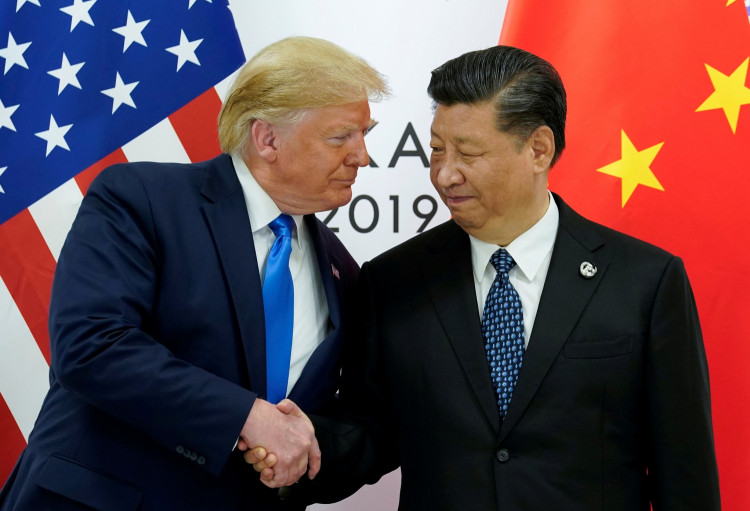Chinese President Xi Jinping extended a cautious congratulatory message to Donald Trump on his presidential victory, signaling hopes for stable bilateral relations but preparing for renewed tensions. Trump's return to the White House, marked by promises of aggressive trade measures and confrontational rhetoric, could revive some of the most contentious elements of his previous term, threatening China's fragile economy.
"Stable, sound, and sustainable China-U.S. relations serve the interests of both," Xi said in a statement on Thursday. Emphasizing the need for dialogue, he urged both countries to find "the right way to get along." The restrained tone reflects China's wary anticipation of fresh challenges as Trump prepares to impose sweeping 60% tariffs on Chinese imports, which could destabilize China's economy, already grappling with sluggish growth and mounting debt.
Trump's return comes at a critical time for China, which has faced U.S. tariffs since 2018, leading to a trade war that caused economic strain and international tension. While a partial truce was reached in 2020, President Joe Biden maintained most of the tariffs and introduced new ones targeting strategic industries such as steel and electric vehicles. Beijing's response to the current political shift has been cautious, with officials stressing their willingness to maintain "healthy economic and trade ties" with the U.S.
Analysts warn that another round of tariffs would have serious consequences for China. A UBS analysis suggests that a 60% duty on Chinese imports could reduce China's economic growth by as much as 2.5 percentage points, compounding issues such as high youth unemployment and a lingering property slump.
"Given the weak economic position of China this time, I think there will be more willingness to talk," said Henry Gao, a trade law professor at Singapore Management University. Gao noted that while tariffs could initially harm China's economy, they might also drive Beijing back to the negotiating table.
Complicating the picture are potential geopolitical tensions, particularly over Taiwan. Trump has vowed to impose even higher tariffs-up to 200%-if China attempts to annex the self-governed democracy. During his first term, Trump angered Beijing by accepting a call from Taiwan's then-president, breaking decades of diplomatic protocol. While China's leadership hopes Trump will adhere to the status quo, his unpredictability leaves uncertainty.
"Trump's transactional nature means that U.S. support for Taiwan could come at a price," said Wen-Ti Sung, a fellow at the Atlantic Council based in Taipei. Trump's rhetoric on Taiwan, including demands that it pay for U.S. defense support and accusations of stealing American jobs through semiconductor dominance, poses a new layer of tension.
Despite these challenges, Chinese state media have expressed cautious optimism about a potential "new beginning" in U.S.-China relations. The state-run China Daily suggested Trump's presidency could provide opportunities for a reset if approached pragmatically. Yet, the editorial acknowledged that deeply rooted challenges, such as disputes over trade and technology, could reignite tensions.
Technology remains another critical flashpoint. During his first term, Trump targeted Chinese tech firms like Huawei over national security concerns, a policy continued by the Biden administration. Trump has criticized the CHIPS and Science Act, which aims to bolster U.S. semiconductor production, calling it a threat to his reindustrialization efforts.
Beijing may turn to allies such as Elon Musk, a Trump supporter with deep business ties in China, to navigate potential technology restrictions. However, it remains unclear whether Musk can influence U.S.-China tech policies.






